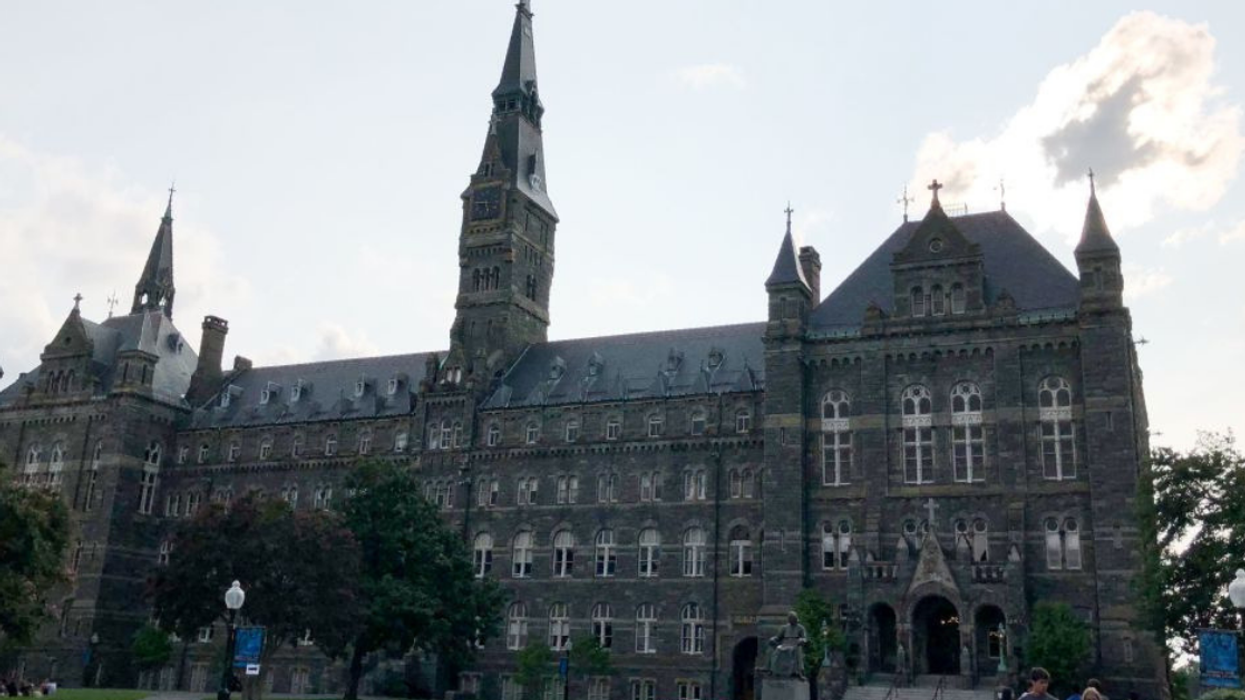Georgetown University could become the first university in the nation to have a reparations policy, mandating a fee to benefit descendants of slaves sold by the university nearly 200 years ago.
Georgetown undergraduates will vote Thursday on a referendum to increase tuition by $27.20 a semester to benefit the descendants of slaves the university sold 272 years ago to pay off the Georgetown Jesuits' debt.
The move has been widely credited with keeping the school financially solvent.
In a statement on behalf of the university, Georgetown's media relations manager Matt Hill told ABC News:
"Student referendums help to express important student perspectives but do not create university policy and are not binding on the university. The university will carefully review the results of the referendum, and regardless of the outcome, will remain committed to engaging with students, Descendants, and the broader Georgetown community and addressing its historical relationship to slavery."
The discussion came about after a group known as the GU272 Advocacy Team presented to student government a bill that would go to a reconciliation fund to be overseen by a board made up of students and descendants of the 272 slaves born in 1838.
According to the bill, the fund would generate more than $400,000 a year and would "be allocated for charitable purposes directly benefiting the descendants of the GU272 and other persons once enslaved by the Maryland Jesuits."
"We believe that financial restitution funded toward conscious, descendant advocacy-based policy is the best way that we as an institution can support these individuals," said Nile Blass, a Georgetown freshman who is part of the GU272 Advocacy Team.
Sophomore Eliza Dunni Phillips, also a member of the advocacy team, told CNN she interviewed several descendants of the sold slaves while on a field trip for the student paper to Maringouin, Louisiana:
"The vestiges of slavery are still so evident, and so many of the African Americans whose ancestors were enslaved are still so disenfranchised. It's not enough to say sorry. Georgetown has to put their money where their mouth is and invest into the descendant community."
The initiative comes at a time when the nation is grappling with the subject of reparations; indeed several prospective presidential candidates have been asked to weigh in on the issue. Several Georgetown students, like senior Hunter Estes, have objected to the referendum and expressed reservations about transparency:
"Morally, I'm opposed to mandating an entire student population to pay a compulsory fee. You can't attach a financial number for the problem of slavery. You can't say that this will account for it. There's little description as to how the money would be allocated."
The issue has also divided observers; while some support the advocacy measure, others have suggested that Georgetown, not its student body, should have to foot the bill.
Even if the bill doesn't pass, Nile Blass, the GU272 Advocacy Team member, says the discussion of reparations has caused people to reflect on not just Georgetown's historical sins, but also the turbulent history of race relations.
"We're getting dialogue and conversation that I think is invaluable ... to the greater conversation that's happening about reparations," Blass said.














 @DuncanCecil/X
@DuncanCecil/X @@realDonaldTrump/Truth Social
@@realDonaldTrump/Truth Social @89toothdoc/X
@89toothdoc/X @xray_media/X
@xray_media/X @CHRISTI12512382/X
@CHRISTI12512382/X
 @sza/Instagram
@sza/Instagram @laylanelli/Instagram
@laylanelli/Instagram @itssharisma/Instagram
@itssharisma/Instagram @k8ydid99/Instagram
@k8ydid99/Instagram @8thhousepath/Instagram
@8thhousepath/Instagram @solflwers/Instagram
@solflwers/Instagram @msrosemarienyc/Instagram
@msrosemarienyc/Instagram @afropuff1/Instagram
@afropuff1/Instagram @jamelahjaye/Instagram
@jamelahjaye/Instagram @razmatazmazzz/Instagram
@razmatazmazzz/Instagram @sinead_catherine_/Instagram
@sinead_catherine_/Instagram @popscxii/Instagram
@popscxii/Instagram
